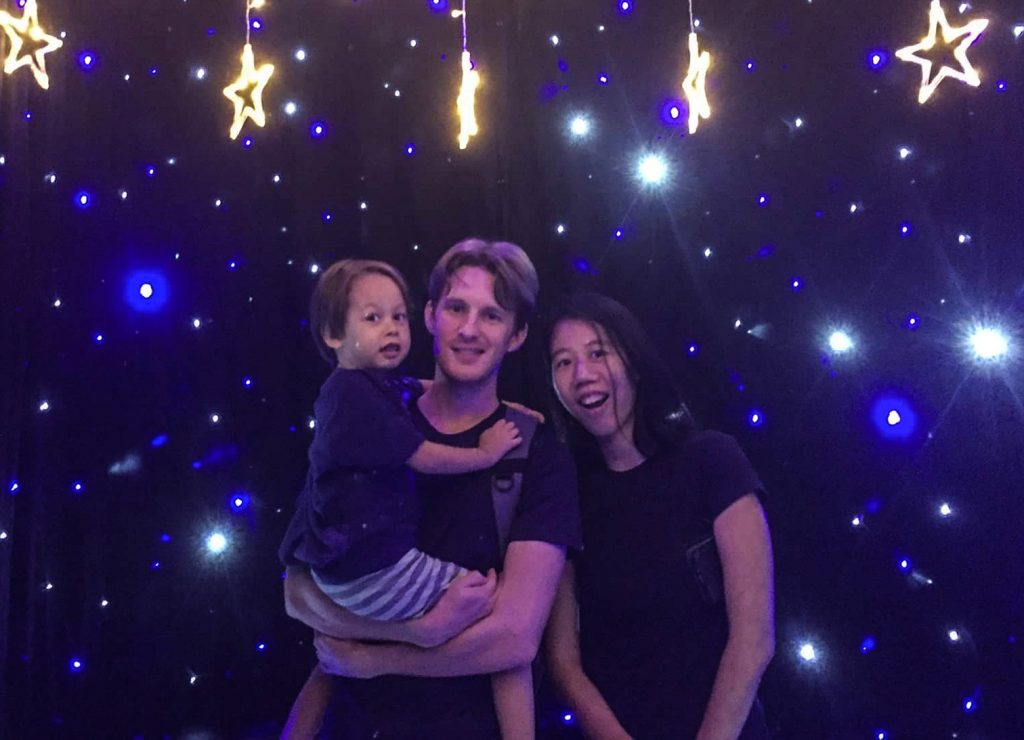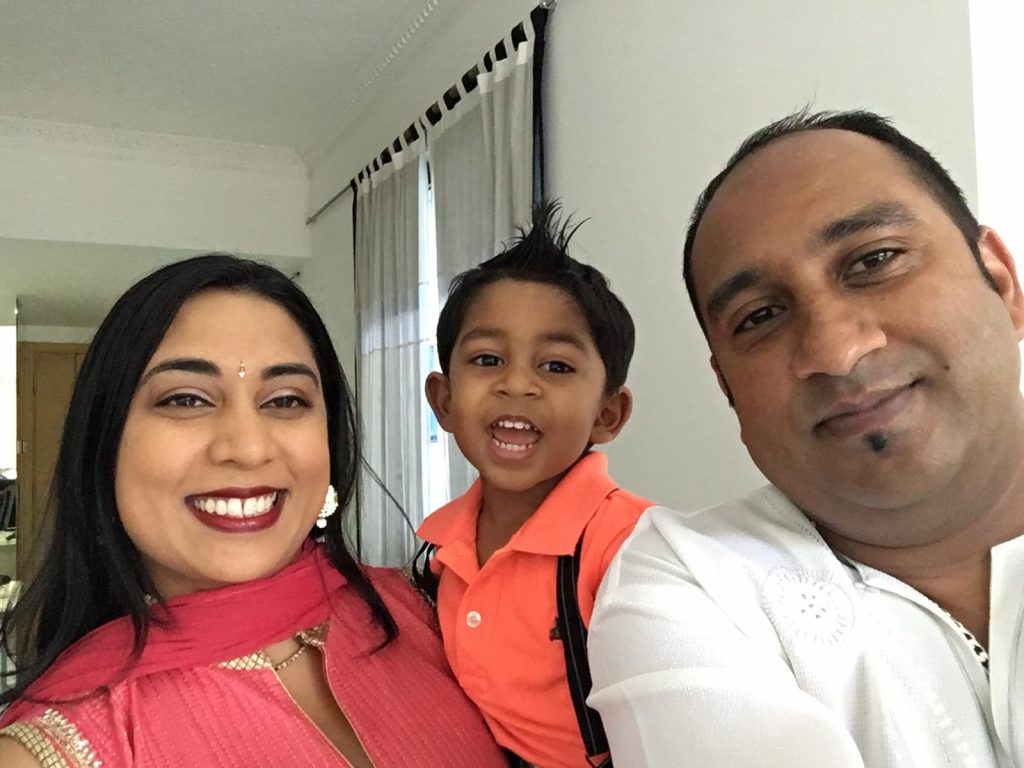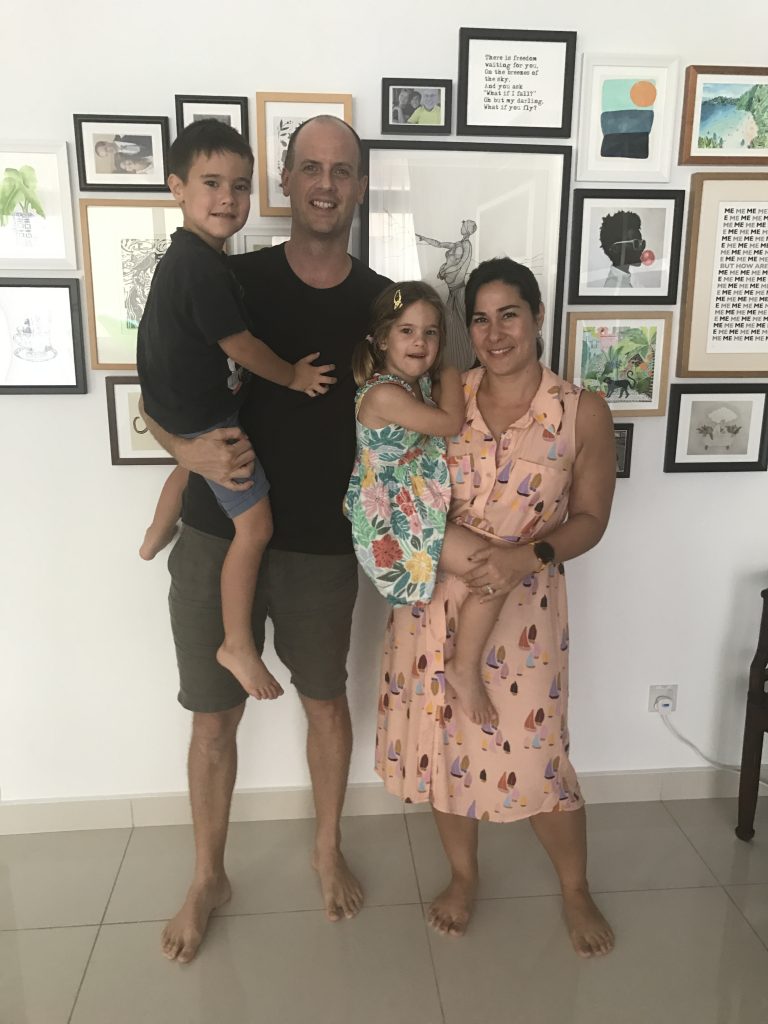When Ms Kaye Lam was expecting her first child in 2013, she moved back to Singapore from Japan, where she’s been working as a freelance designer at Pixel and Code for 8 years. Her American husband Jonathan Reule, who was then an English teacher at Nova School, also relocated here.
After giving birth to their son, Scott, Ms Lam started a home-based web design business Pixel and Code. Mr Reule, in the meantime, had no luck securing a job. Whenever Ms Lam was busy with her freelance gigs, he’d take care of the baby, cook for the family and clean the house.

“Dealing with the baby’s tantrums and thinking of nutritious recipes — all that didn’t come naturally to me at first,” said Mr Reule, now a confident house husband. “Just because I’m a man doesn’t mean I’ve to be the one bringing in the money. I can contribute to the household in a way that’s important.”
Ms Lam said her parents, who’re “quite traditional-minded”, had wanted Mr Reule to find a job initially. But they’ve come to see the benefit of such an arrangement. It allows the couple to spend more time with the child while saving on childcare costs.
While Ms Lam acknowledged that they sometimes face financial stress living on a single, freelance income, she’s happy being the provider rather than a full-time mum. “I’m glad I have my work to keep me sane.”
Citing data from the past few censuses and General Household Surveys, the Ministry of Social and Family Development (MSF) noted that the percentage of resident families with women as the head of the household (generally defined as the main income earner, house owner or eldest member) has been rising gradually over the years.
In 1990, the percentage of female-led households was 16.7 per cent. In 2015, it’s 25.2 per cent. That means for every 3 male-led households, there’s now at least 1 female-led household.
Ms Denise Naidoo is another example. She moved here with her family from South Africa when she was offered a role as a talent lead at professional services company Avanade in 2017. Her husband Akash Jandruballi decided to be a full-time dad to their 2-year-old son, since she has to travel for work frequently.

She said her colleagues have asked her, out of concern, if the arrangement was her choice. And she reassured them that it was a joint decision with her husband.
“We have the belief that marriage is a partnership. We treat each other as equals. It’s not like I’m ‘superior’, or he’s ‘superior’.”
She said she does feel “guilty” that she’s missed so many of her son’s “milestones” – from his first step to his first words. But she would remind herself: “You can be a great mom even if you’re working because you cherish the time with your child even more.”
Working nearly 60 hours a week, Ms Angelina Bopp, a managing director at Standard Chartered, is grateful to have her husband’s support in caring for their 2 children, aged 3 and 5.

The couple moved here from London in 2016 when Ms Bopp got the job. Her husband Paul Simpson’s initial plan “was to get back to work as quickly as possible”, but he decided to focus on looking after the children while pursuing a master’s degree. In addition, he also serves as a business mentor for charitable organization Talent Trust.
He noticed that “people tend to switch off immediately” when he says “I don’t work”. But the division of labor actually works well for the couple since the wife is more “driven and ambitious”.
The couple hope that Singapore will have a stronger network for stay-at-home dads. “Everything that is set up is for mums and kids still,” said Ms Bopp. On whether she would ever switch roles with her husband, Mrs Bopp added, “[Being a stay-home-mum] would make me very restless because I can be quite competitive, so not being able to use that energy anywhere would be challenging.”
